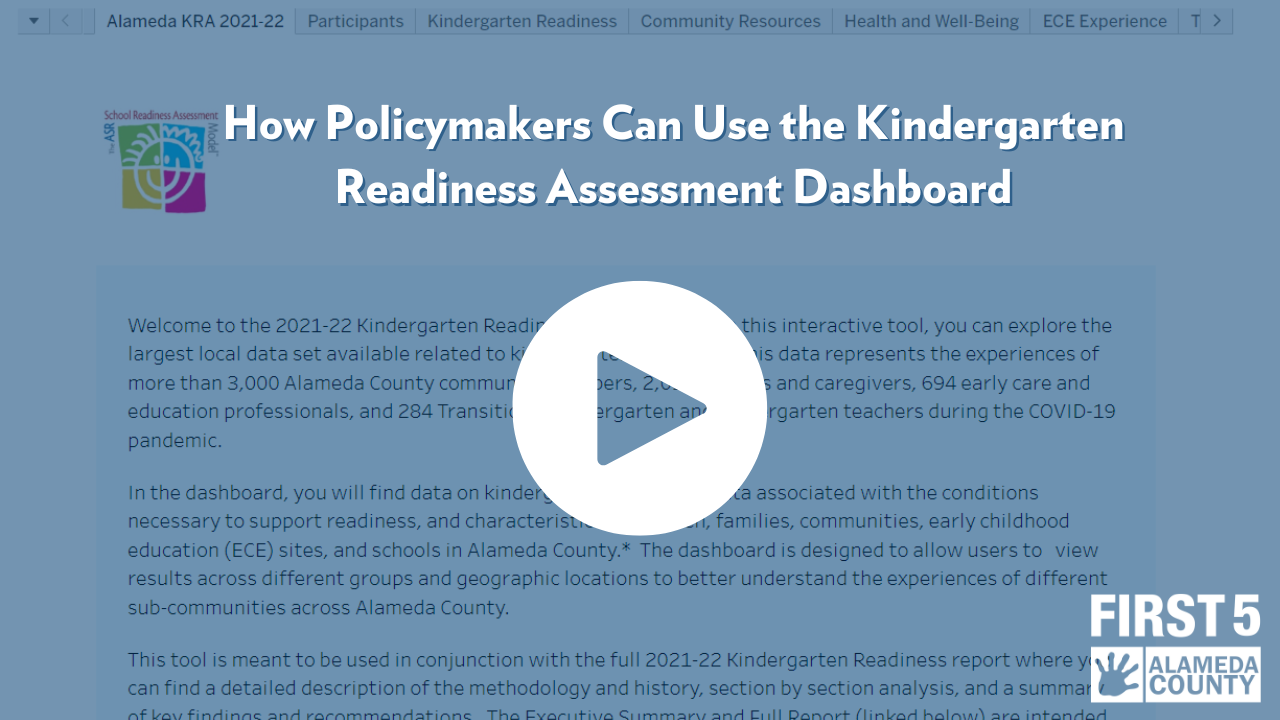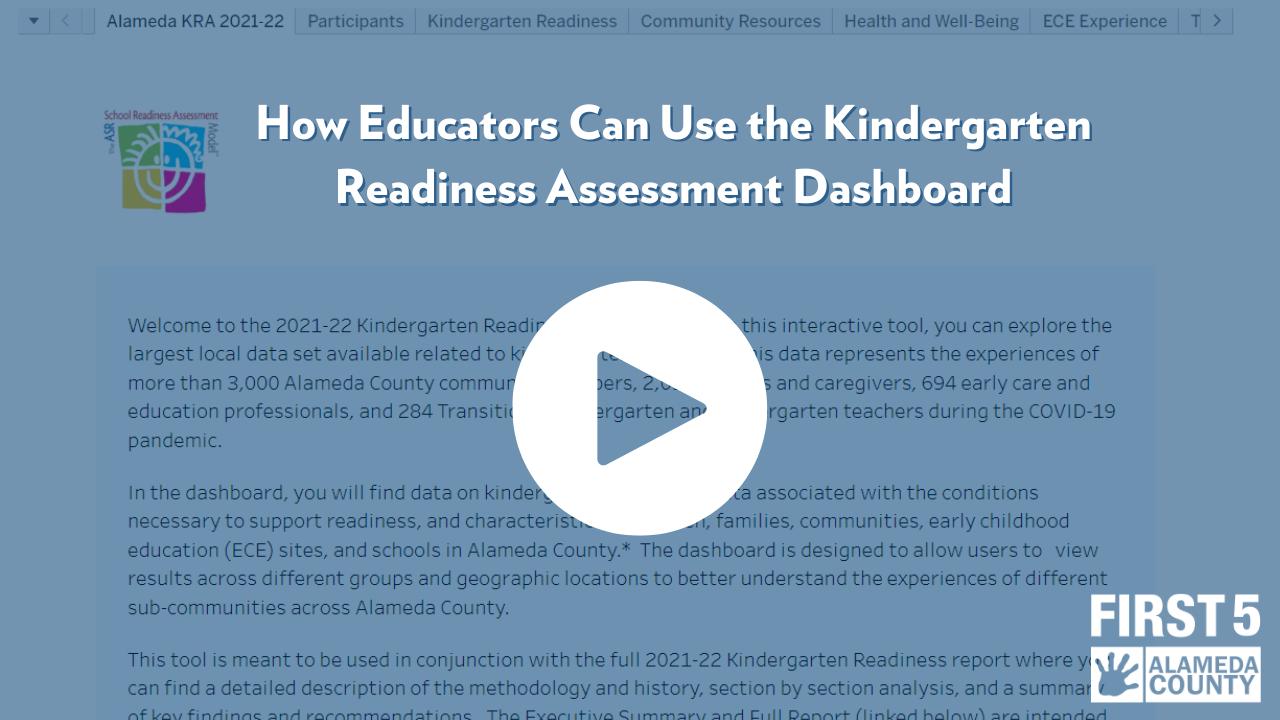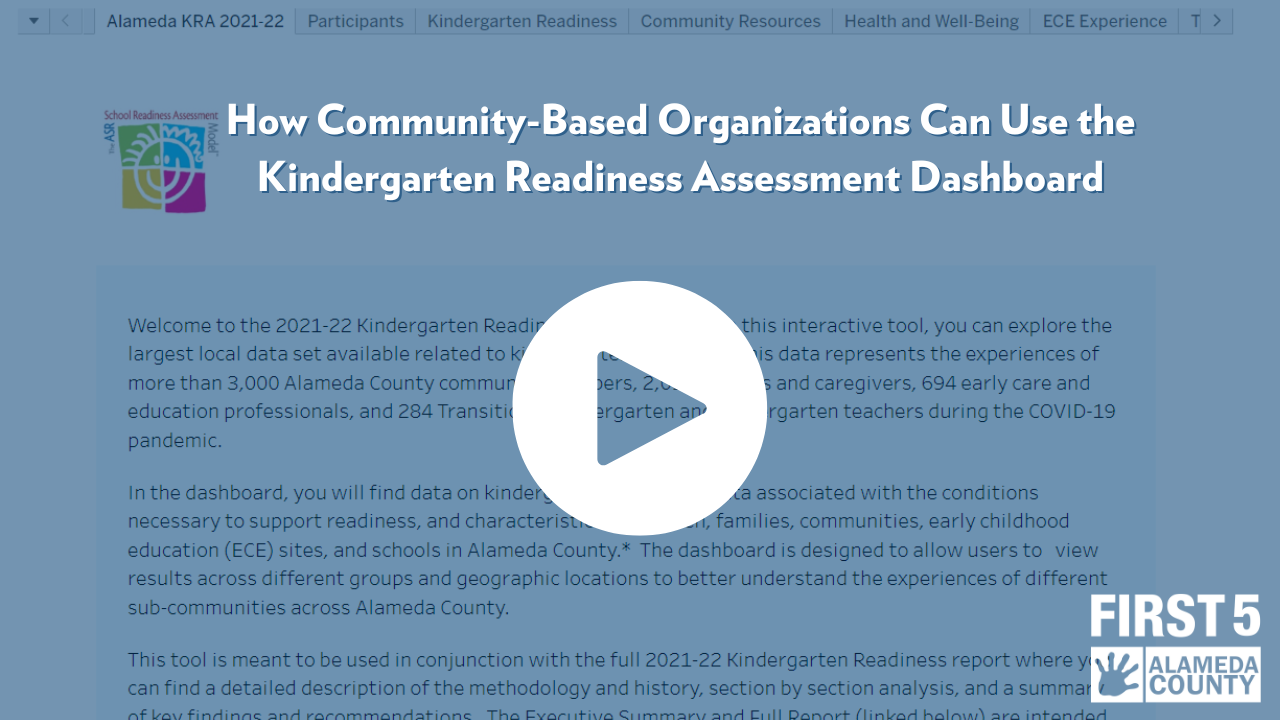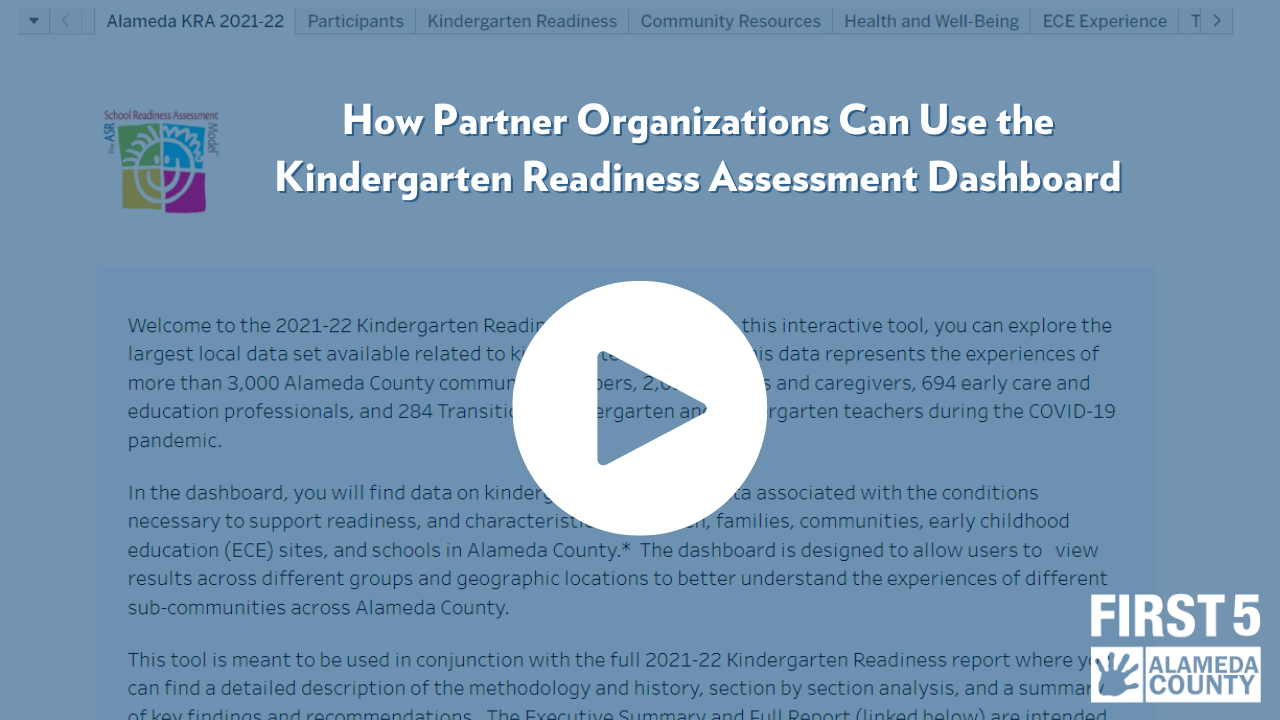2021-22 Kindergarten Readiness Assessment
First 5 Alameda County's 2021-22 Kindergarten Readiness Assessment supports policy and systems change that will result in sustained impact for the children we serve at a local, state, and federal level.
2021-22 Kindergarten Readiness Assessment Dashboard:
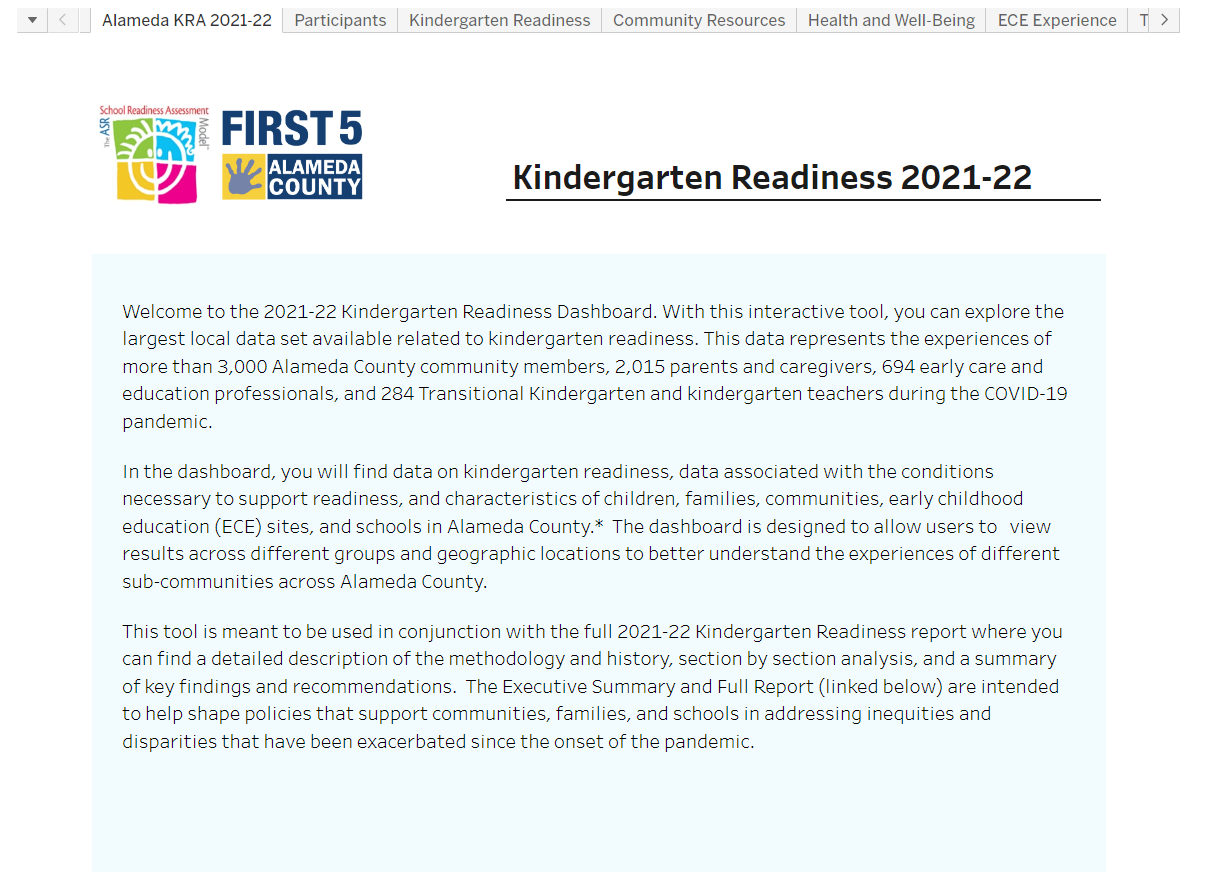
Our Kindergarten Readiness Assesment (KRA) Dashboard lets you explore that data in a variety of categories. For more information on how to use the dashboard, watch our tutorial videos below. If you have further questions about the dashboard or the KRA, please email Jamie Klinger at jamie.klinger@first5alameda.org.
Other Materials in English:
- 2021-22 Full Kindergarten Readiness Assessment Report
- 2021-22 Kindergarten Readiness Assessment Executive Summary
- Road to Kindergarten Readiness
- Policy in Action: First 5 advocacy using 2021-22 Kindergarten Readiness Assessment findings and recommendations.
|
Materiales en Español: |
Materials in Chinese: |
Kindergarten Readiness Assessment
Children are not innately ready or not ready for kindergarten. They thrive when they grow and develop in environments that support and nurture them and their families. This requires community conditions that position families for success—well-paying jobs, access to quality, affordable early care and education, transportation, health care, safe, inviting places to live, play, and connect. It also requires freedom from discrimination rooted in racism and classism. The 2021-22 Kindergarten Readiness Assessment (KRA) (Executive Summary in English and Español) findings and recommendations show how our county may improve kindergarten readiness in the overlapping environments that influence children’s readiness—communities, families, and schools.
Overall, readiness data shows that differences in kindergarten readiness are largely attributable to inequities in access to resources and educational experiences. These outcomes have roots in social, racial, and economic inequity, but can be changed with targeted investments in communities, families and schools.
Participatory Framework
As part of First 5’s intentional commitment to equity, we have evolved our organizational practices, including our approach to data and research. The KRA narrative began to incorporate the changes in 2015, with substantial shifts in the 2017 KRA framing. Consistent with this trajectory, the 2021-22 KRA process was designed to be participatory through the inclusion of a Research Advisory Group. The group was composed of diverse parents/caregivers who were compensated for their time, educators, representatives from community based organizations, and policymakers. Advisory group members provided input on survey design, recruitment and outreach, interpretation of the results, and the final report recommendations.


We're grateful to the educators who made the Kindergarten Readiness Assessment Possible. Click here for a thank you message from our Chief of Staff.
Why Kindergarten Readiness Matters
The Alameda County 2018 Longitudinal Study of children's scholastic progress found that achievement gaps are persistent: 4 in 5 Children who are behind in kindergarten are still behind in the 3rd grade. Students who are more prepared for kindergarten have higher achievement in third grade. Further, four out of five children who are not ready in any skill domain are still not meeting learning standards in third grade, a predictor of high school graduation and later health and career success. This reinforces the policy recommendations from the 21-22 Kindergarten Readiness Assessment to promote community conditions so that all children can succeed.

First 5 Resources
- Resource for Parents/Caregivers, Providers, and Educators at AlamedaKids.org
- Past Kindergarten Readiness Assessments
Explore the KRA and Access Open Data
To access open data from the KRA, please complete this form.
To access open data from the KRA, please complete this form below

